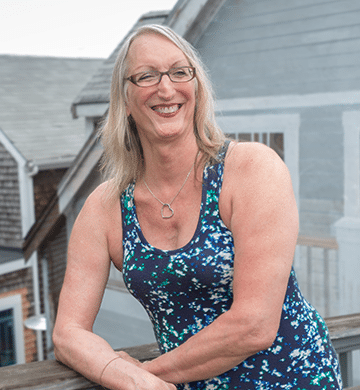
Blog
Every young person is entitled by law to an education. When school environments are hostile to any student—because of race, gender, religion, sexual orientation, disability, or gender identity—we fail in our responsibility to provide that education.
“A transgender student must be able to bring his or her whole self to school in order to learn,” says Jennifer Levi, director of GLAD’s Transgender Rights Project.
“When we advocate for transgender students to be called by the correct name, to be free from bullying and harassment, or to have access to bathrooms and locker rooms according to their gender, we do so because these are essential
components of an effective learning environment.”
Levi is helping to shepherd five different amicus briefs filed in support of Gavin Grimm, the high school student in the ACLU case G.G. v. Gloucester County School Board, which will be heard before the U.S.
Supreme Court in March. Grimm’s education is being disrupted by his school’s refusal to let him use the proper bathroom.
One brief is being written on behalf of the World Professional Association for Transgender Health, the Pediatric Endocrine Society, the nation’s leading clinics specializing in serving transgender youth, Dr. Norman Spack of Boston Children’s Hospital, and a number of other prominent doctors and medical and policy organizations with expertise in adolescent and transgender health issues.
It closely examines research on child development of identity, and the role of schools in advancing—or
thwarting—healthy development.
“The brief makes the case that being able to use the same bathroom as other students at school is critical for the healthy development of transgender adolescents—as it is for all adolescents—and therefore central to an effective educational environment,” says Levi. GLAD also recently worked with Colby Patrie, a student at Northern Essex Community College (NECC) in Massachusetts, to make the campus a more welcoming place for transgender students.
“Community colleges offer open access to affordable academic and workforce training programs,” says senior staff attorney Polly Crozier. “It is critical that these community institutions are inclusive to all including transgender students.”
The college’s policy did not allow all transgender women to use the women’s facilities and all transgender men to use the men’s facilities. And with no all-gender bathrooms on the classroom side of campus, students had to choose between going to the bathroom and going to class. The alternative was using a bathroom where they felt uncomfortable or unsafe.
“The facilities policy caused confusion, fear, and shame on campus,” says Colby. “I really felt it needed to change, to let transgender students know that the school respects, values and includes us.”
GLAD worked to bring NECC in line with state and federal law, sending a demand letter to the school which read in part, “NECC’s current policy is out of step with virtually every other entity in the Commonwealth of Massachusetts…[including] elementary schools, middle schools, high schools, employers, landlords…hospitals, gyms, homeless shelters and swimming pools.”
Following the demand letter, NECC changed this policy—and another policy affecting transgender students and their ability to use the correct name in school records.
Transgender students of color can experience multiple forms of discrimination that exacerbate their isolation and mistreatment in school. In search of a better education for her children, Hartford,
Connecticut mom Shabree enrolled her child Aryana in the South Windsor Public Schools through the Open Choice program. But nearly as soon as Aryana stepped in the door of her new school, she was
subjected to disproportionate discipline and overt racial and gender bias.
The South Windsor public schools’ mission statement calls for an emotionally and physically safe environment. Shabree’s repeated attempts to work with the school administration to address the escalating problems were futile. Aryana, she says, “despised going to school every day.”
With Greater Hartford Legal Aid, GLAD helped the family file a complaint with the Connecticut Human Rights Commission, and tell their story to the local media. Even though Aryana ended up leaving South Windsor, her case brought to light systemic problems in the school, and empowered both Aryana and Shabree.
“Life is way too short to settle, to just conform to what society wants you to be,” says Shabree. Aryana agrees:
“Don’t be the person inside the box. Step outside, and be yourself.”
It’s every child’s right to learn, and to learn while being themselves.



